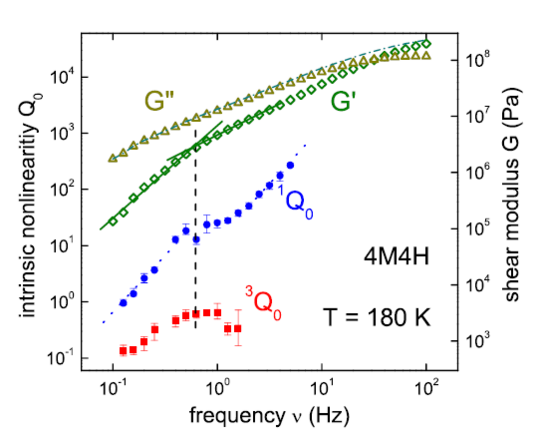Nonlinear rheological and dielectric spectroscopy
When materials are subjected to large external disturbances, their response is no longer proportional to the disturbance. Rather, nonlinear components contribute in addition to the linear response. Large mechanical and electrical stresses occur in the manufacture and use of everyday objects. For example, rechargeable batteries should withstand shocks, as well as the high electric fields that occur due to miniaturization.
We are investigating the nonlinear mechanical response of a wide variety of materials using large amplitude shear rheology and the electrical response using dielectric spectroscopy with high electric field strengths. These nonlinear responses can reveal new behaviors not present in the linear domain as well as provide information about processes already occurring linearly.
For example, the nonlinear shear rheological response of the monoalcohol 4-methyl-4-heptanol (4M4H) in the plot on the right shows a low-frequency Debye process, corresponding to fluctuations of transient hydrogen bonded chains (see here), which is already implied in the linear response of the shear modulus G.



